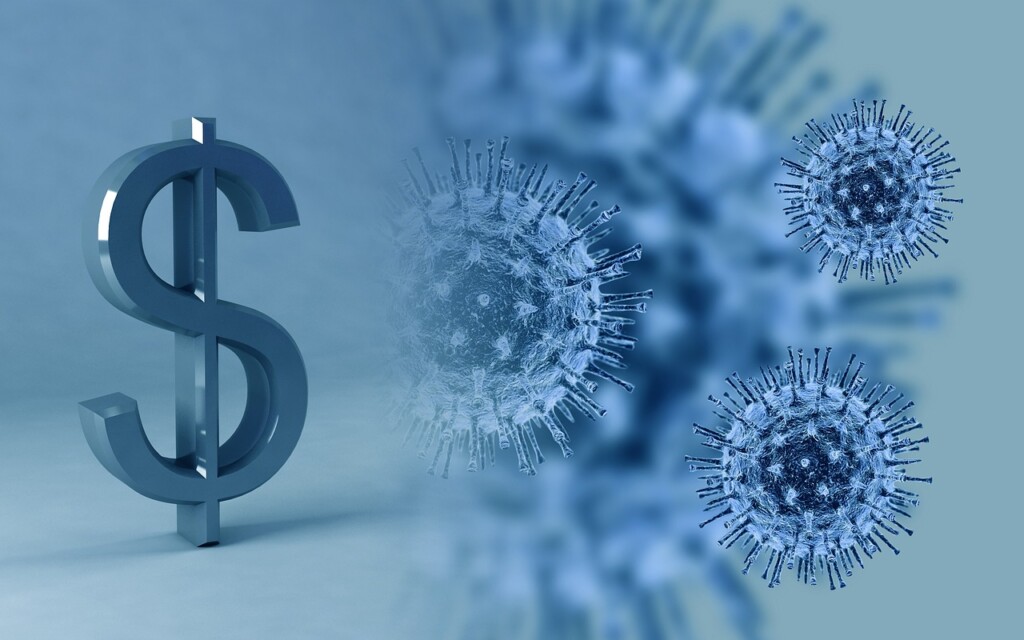
BILLIONS AGAINST BAYER
In Washington, a Battle Builds Over a Right To Sue Pesticide Makers
Carey Gillam, The New Lede:
“It’s been seven years since Germany’s Bayer bought US agrochemical giant Monsanto, inheriting not only the company’s vast portfolio of seeds and pesticide products, but also more than 100,000 lawsuits alleging Monsanto’s popular Roundup herbicide causes cancer. Bayer, which has so far paid out billions of dollars in settlements and jury verdicts to cancer victims, has been working – so far in vain – to put an end to the litigation and to block any future such cases.
Now, the company appears closer than ever to success, as many Republican congressional leaders push for measures that would effectively block lawsuits against pesticide makers around the country.
A group founded by Bayer called the Modern Ag Alliance is the face of the legislative push, advocating for liability shields they say are necessary to allow companies to continue to sell pesticides that farmers use to kill weeds and bugs in their fields.”
TAKE ACTION: Tell Congress to Ban Roundup, Not Bail Out Bayer!

WORLD FOOD DAY
Introducing Our 2025 People’s Food Summit Speakers
The People’s Food Summit is just around the corner, and our lineup of farmers, Indigenous knowledge keepers, scientists, authors, and agroecology advocates from around the world continues to grow.
Among them are Monique Gray Smith, whose adaptation of Braiding Sweetgrass invites younger generations into plant teachings and Indigenous worldviews through love and reciprocity; Rosinah Mbenya, a Kenyan environmentalist and agroecology leader working across Africa to elevate women, youth, and climate resilience; and Vandana Shiva, a longtime global advocate for seed freedom, traditional knowledge, and food sovereignty.
These speakers, along with more still being confirmed, will join regional panels, cross-continental dialogues, and one-on-one conversations. Join us for this virtual event on October 16th as we invite the global community to reimagine food systems as tools for ecological healing, cultural resilience, and community power across diverse biomes, climates, and communities.

USDA WATCH
USDA Cancels Survey Tracking How Many Americans Struggle To Get Enough Food
Jordan-Marie Smith, NPR:
“The United States Department of Agriculture (USDA) under the administration of President Trump announced on Saturday that it will end a longstanding annual food insecurity survey, calling it ‘redundant, costly, politicized, and extraneous.’
The Household Food Security Report provides yearly data on the lack of access to adequate nutrition for low-income Americans, and helps shape policy on how to combat food insecurity and hunger.
The USDA’s announcement comes after Trump signed the One Big Beautiful Bill Act into law this summer, which expands the work requirements for the Supplemental Nutrition Assistance Program, or SNAP. This, in effect, will leave an estimated 2.4 million Americans without food aid.”

TRUTH IN LABELING
In Switzerland, Meat Labels Must Now Disclose Animal Cruelty Practices
Anay Mridul writes for Green Queen:
“In a big win for animal rights activists and food transparency, Switzerland now requires meat, dairy and egg labels to show if they were produced through painful procedures without an aesthesia or stunning. The new ordinance is designed to give consumers clearer information about animal proteins and help them make informed purchasing decisions. In addition, it aims to encourage the livestock sector to transition to more ethical practices.
‘When purchasing animal products such as meat, milk, or eggs, consumers will in future have access to additional information about the production method,’ the Federal Council said. ‘This will enable them to determine whether these foods were produced using painful procedures without the animals being anaesthetized beforehand.’
The labelling requirement came into effect on July 1 and is accompanied by a transition period of two years. According to the Federal Council, such products include beef derived from cattle castrated or dehorned without anesthesia, dairy from cows dehorned without pain relief, and eggs and meat from chickens whose beaks are clipped without pain relief. Pigs that are castrated or whose tails are docked and teeth clipped without anesthesia fall under the category, as do frog legs obtained without anesthesia.”
Read more about how the government is inhibiting plant-based meat with labeling too

HEALTHY LIVING
Qigong: This Yoga Alternative Is Equipment-Free, Beginner-Friendly and All the Poses in This Flow Are Done From Standing
Lee Holden, Fit & Well:
“If you lack the flexibility or balance to do all but the most basic yoga poses, you might find yourself looking for an alternative breath-focused practice. Enter Qigong.
I was introduced to Qigong by Lee Holden, who is the founder of Holden Qi Gong and a master of the art. It is a great alternative to yoga because it is even gentler on the body, and the movements are accessible even to those with limited mobility. Every exercise Holden shared is performed standing, so you won’t have to worry about getting down to the floor and back up again.
‘Qigong exercises are equipment-free, beginner-friendly, and can be done anytime, anywhere,’ says Holden.”

SUPPORT OCA & RI
Join the Fight Against Toxic Pesticides
Pesticides poison our soil, pollute our air and water, and threaten the delicate balance of our ecosystem.
The Organic Consumers Association is working tirelessly to reduce pesticide use and promote organic regenerative agriculture. By supporting us, you’ll be helping to advocate for policies that protect public health and the environment, educate consumers about the importance of organic farming, and empower farmers to make a positive impact.
Your voice matters, and with our help, you can have a real impact on policy decisions that affect our food system. We’ll give you opportunities to speak out against harmful pesticides and in favor of organic, real regenerative agriculture, an abundant ecosystem, and food safety, ensuring that your concerns are heard by policymakers.
Together, we can create a healthier, more local and clean food system. Your donation will help us continue our mission to promote organic agriculture and reduce the use of harmful pesticides and a brighter future for all.
If you can, please donate now.
Make a tax-deductible donation to Organic Consumers Association, a 501(c)(3) nonprofit
Make a tax-deductible donation to Regeneration International, our international sister organization

NEW STUDY
Tap Water Rules That Could Prevent 50,000 Cancer Cases
Anthony Lacey & Tasha Stoiber, Ph.D. report for Environmental Working Group (EWG):
“Regulating and treating multiple drinking water contaminants as groups, instead of the standard method of targeting one at a time, would significantly benefit public health.
Millions of Americans have drinking water contaminated with hexavalent chromium and arsenic or nitrate, or all three, a new EWG map shows.
Treating tap water for these and other pollutants at once could prevent up to 50,000 lifetime cancer cases in the U.S, a recent peer-reviewed EWG study finds. For example, ion exchange is a water treatment that can help reduce arsenic, nitrate and hexavalent chromium together at once. This in turn lowers the cancer exposure risk for people drinking that water across the board.
The development of federal drinking water rules currently relies on the same years-old approach of focusing on a single contaminant.”

NEW REPORT
Nearly 200 Land and Environmental Defenders Killed in 2023, Mostly in Latin America
Martina Igini, Earth.Org:
“196 defenders were murdered in 2023 while exercising their right to protect their lands and the environment, a new report has revealed, adding that the number of casualties is likely much higher.
This brings the total number of killings to 2,106 since Global Witness began reporting data in 2012, the environmental watchdog group said in its latest report published Tuesday.
Environmental defenders play a crucial role in protecting the environment and defending key forests, habitats and ecosystems. Indigenous people alone steward around 20% of the Earth’s land, which contains 80% of the world’s remaining biodiversity. Of all defenders murdered last year, 43% were Indigenous people and 12% were women.
‘Every killing leaves the world more vulnerable to the climate, biodiversity and pollution crises,’ the report read. It added that these murders are just one piece of a wider puzzle of abuses and attacks by governments, businesses, and other non-state actors against environmental defenders, including intimidation, violence, smear campaigns and criminalization.”

IN THE KITCHEN
No, You Don’t Need To Soak Your Beans — Here’s Why
Adam Dolge writes for Food & Wine:
“Conventional wisdom has long held that dried beans should be soaked before cooking. As the thinking went, soaking beans overnight in cold water helped them to cook faster, produced creamier interiors, and made them easier to digest. The problem: The time investment pretty much made a spontaneous pot of beans a nonstarter. If you found, say, a delicious-looking dried beans recipe that called for an overnight soak, well, you had to make it for dinner tomorrow night.
But in the past few years, chefs have rethought the soak, including Joe Yonan, author of Cool Beans: The Ultimate Guide to the World’s Most Versatile Plant-Based Protein.
‘My basic feeling about soaking is it’s definitely not a requirement; you can just cook some beans,’ says Yonan. ‘There are some reasons you may want to [soak], but what I didn’t realize until several years ago is there are good reasons not to.’”
Learn why you can skip soaking (and the one bean you should never soak)

AGRICULTURE
Rethinking No-Till
Friends of the Earth:
“With billions of dollars being invested, and the future of our food system at stake, we must ensure that regenerative agriculture is guarded against false marketing claims and pesticide industry greenwashing.
No-till — a farming practice that dramatically reduces tillage and plowing — is widely lifted up as a leading form of regenerative agriculture. But Rethinking No-Till finds that most conventional no-till falls far short of the goals of regenerative agriculture, which include building soil health, protecting biodiversity, and supporting human wellbeing.
The fact that so many farmers have adopted no-till practices is evidence that they are interested in protecting their soil. We must restructure the public policies and market signals that lock in chemical-intensive agriculture in the U.S. to support these and other farmers to achieve truly regenerative agriculture.
Based on a first-of-its-kind analysis of U.S. Department of Agriculture (USDA) data, the report finds that most no-till systems are so heavily dependent on herbicides to manage weeds that a staggering one-third of total annual pesticide use (a term that includes herbicides, insecticides, and fungicides) in the U.S. can be attributed to no-till* corn and soy production alone.”

MENTAL HEALTH
Lower Creatine Intake Associated With Greater Depression and Anxiety
Eric W. Dolan, PsyPost:
“A large epidemiological study from South Korea provides new evidence that people who consume more creatine in their daily diets tend to have better mental health. The research, published in Nutritional Neuroscience, found that lower creatine intake was associated with greater depression severity, more frequent suicidal thoughts, and higher anxiety symptoms. While the results are not definitive, they point toward a potential role for creatine-rich diets in supporting psychological well-being.
Creatine is a compound made naturally by the human body, but it is also found in certain foods, especially animal-based proteins like meat, poultry, and fish. It plays a key role in maintaining energy levels in cells, including in the brain. The average adult needs about two grams of creatine per day, roughly half of which is typically obtained from diet. While creatine is most commonly known as a supplement used by athletes to improve muscle performance, research has been expanding into its effects on brain function.”

LITTLE BYTES
Other Essential Reading and Videos for the Week
Some Popular Toothpastes Contain Lead, Mercury, and Arsenic. Does Your Brand?
Oilfield Spill Leaks 840,000 Gallons of Oil and Brine Mixture, Contaminating Agricultural Land
Why Are Some Tree Trunks Painted White?
Rosemary: More Than a Kitchen Herb — A Superfood for Your Brain
Homeopathy Product Market to Reach $29.5 Billion by 2033, Growing at 12.1% CAGR
Scientists Develop Sunscreen Made From Pollen That Doesn’t Harm Corals
Animals That Spread Seeds Are Critical for Climate Solutions
Civil Eats Launches a New Crash Course on Civics and the Food System
Wildfire Smoke Could Soon Kill 71,000 Americans Every Year
Survey Finds Half of Teachers Expect to Buy Food for Students This School Year
What Is ‘Harmful’ Ultra-Processed Food? Tips for Cutting Back
Looking for an Environmentally Friendly Drinking Straw? The Answer May Surprise You
Obesity Risk May Be Driven More by What You Eat Than How Much You Exercise
The post Organic Bytes Newsletter #912: Battle Builds Over a Right To Sue Pesticide Makers appeared first on Organic Consumers.
.png)

















 English (US)
English (US)